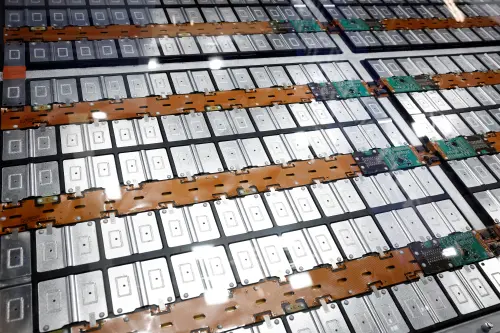Two European startups announced on Thursday significant advancements in recycling electric vehicle battery materials to comply with European regulations, decrease China's dominance in the battery supply chain, and minimize CO2 emissions.
Beginning in August 2030, European automakers must incorporate a minimum of 6% recycled lithium and nickel, and 16% cobalt in EV batteries, with a more stringent requirement five years later, challenging China's leading position in battery recycling.
Altilium, a British battery recycling startup, reported that research from London's Imperial College indicated their recycled cathode materials matched or outperformed those made from new materials sourced from Chinese suppliers, containing lithium, cobalt, nickel, or manganese.
Christian Marston, Altilium's Chief Operating Officer, shared with Reuters that their recycled materials curtail CO2 emissions by 70% and lower costs by 20%, describing it as a significant technical advancement beneficial for automakers.
Altilium is backed by Sociedad Quimica y Minera de Chile's corporate venture arm and a Japanese trading house, while collaborating with Tata Motors' JLR unit to develop EV battery cells using recycled materials from old Jaguar i-Pace EVs.
Concurrently, Germany's tozero, having secured 17 million euros ($17.56 million) from investors including Honda, is designing a pilot plant for recycling graphite and engaging in discussions with global automakers regarding future supplies as their operations expand.
Sarah Fleischer, tozero's CEO, mentioned that their hydrometallurgy process for recycling graphite is emissions-free if powered by renewable energy, addressing a crucial issue as graphite contributes significantly to the carbon footprint of lithium-ion batteries.
In the next two years, tozero plans to establish a pilot plant and aims to produce approximately 2,000 tonnes of recycled graphite per year by 2027, sufficient for around 50,000 EVs.
($1 = 0.9681 euros)
